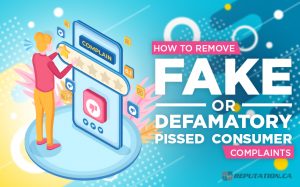Introduction:
Fake news is becoming more and more common in a time when people are constantly exposed to information from different sources. This raises concerns about how much First Amendment protection applies to this kind of content. Fake news is protected under the First Amendment under the pretext of free speech, despite its misleading character. This has raised concerns about how the First Amendment can defend speech that is both untrue and dishonest. The seeming contradiction of protecting false or misleading information under the guise of free speech usually leads to confusion and annoyance. However, a closer examination reveals the nuanced ways in which the First Amendment preserves the cornerstones of democratic discourse while permitting even deceptive speech. This article explores the nuances of this paradox by looking at the judicial decisions and guiding ideas that support the First Amendment’s protection of phony speech.

The Basis of Right to Free Expression:

Regardless of the accuracy of the statement in question, the First Amendment is based on the pledge to promote free speech and vigorous discussion. The authors of the Constitution understood the importance of free speech in fostering the marketplace of ideas, where opposing points of view vie for acceptance and disagreements lead to the discovery of truth. This expansive conception of free speech includes opinions, satire, and even lies in addition to honest and genuine discourse.

Legal Protections and Precedents:
Since the prohibition of false speech runs the risk of stifling free speech and preventing the free flow of ideas, the Supreme Court has set strict guidelines for restricting speech based only on its veracity. As per the ruling in New York Times Co. v. Sullivan (1964), public officials who aim to establish defamation must exhibit “actual malice” – a deliberate and careless disdain for the truth – on the part of the speaker. This high bar upholds the idea that truth is best discovered via candid discussion and debate, reflecting the Court’s unwillingness to suppress speech on the basis of its untruth alone.
Entire Speech Protection :
The guarantee of free speech provided by the First Amendment is purposefully broad, covering a wide spectrum of expression, including beliefs, ideas, and even lies. The authors of the Constitution recognized the need of encouraging free speech and disagreement because they believed that a robust democracy depends on the free flow of ideas. The First Amendment supports the idea that the government should not decide what is true or incorrect by defending the right to express oneself, regardless of the truthfulness of the material.

Anxiety Regarding Censorship :
The presumption against government suppression is fundamental to the First Amendment’s protection of fictitious speech. While fake news can be destructive and misleading, there are serious concerns to press and speech freedom when the government is given the authority to censor communication that it deems to be false or misleading. Governments have employed censorship in the past to suppress dissent and sway public opinion on numerous occasions. The First Amendment acts as a safeguard against despotism and authoritarianism by erring on the side of free speech rather than speech restriction.
Legal Guidelines for Regulation :
The First Amendment has certain restrictions even though it safeguards a wide range of speech. Not all forms of speech are protected to the same extent; some, like defamation, fraud, and incitement to violence, may even be regulated or punished by the law. To ensure that they do not unnecessarily violate First Amendment rights, these exclusions are, nevertheless, strictly limited and subject to stringent legal review.
Increasing Democracy Through Conversation:
The First Amendment’s protection of bogus speech highlights how resilient American democracy is to trickery and manipulation. Democratic societies, instead of using censorship or suppression, rely on the wisdom of informed citizens to separate fact from fiction and hold those who spread incorrect information accountable through inspection and open discourse. We can preserve our democratic institutions and strengthen the basis of an educated and involved public by respecting the values of free speech and the press and encouraging media literacy and critical thinking.
Marketplace for Concepts:
The First Amendment’s protection of bogus speech is based on the fundamental premise of the “marketplace of ideas.” This figurative marketplace asserts that truth will ultimately triumph over deception through the unrestricted and transparent exchange of opposing ideas. In order to find the truth and progress knowledge, the marketplace of ideas depends on competition between opposing viewpoints rather than government censorship to stifle fake news.
Media Literacy’s Importance:
The First Amendment does not relieve people or organizations of their duty to counter false information, even while it does guarantee the freedom to spread false information. For negotiating the intricacies of the contemporary information landscape, media literacy and critical thinking abilities are vital. Through enabling people to assess sources, cross-check information, and separate reality from fiction, we can lessen the negative consequences of fake news and preserve the integrity of democratic discourse.
Conclusion:
To sum up, the First Amendment’s protection of bogus speech highlights democratic nations’ underlying commitment to preserving the values of free speech and open dialogue. Although the dissemination of fake news can seriously impair public trust and the ability to make informed decisions, efforts to stop it must strike a careful balance between preserving free speech and preventing the negative consequences of manipulation and deceit. Although it may appear counterintuitive at first, the First Amendment’s protection of bogus speech is based on essential ideas of democratic government and free speech. A healthy democracy depends on a dynamic flow of ideas, which the First Amendment protects by granting the freedom to voice even divisive or incorrect viewpoints. This protection does not, however, relieve society of its duty to counter false information with critical thinking, education, and ethical journalism. In the end, the problem is not stopping phony speech; rather, it is giving people the skills they need to make ethical and judgmental decisions while navigating the complexity of today’s media environment.
- All Posts
- Uncategorized

Dr. Daniel Davidson, MD, MBA Introduction: The goal of success for businesses nowadays is to establish a global brand because…

Dr. Daniel Davidson, MD, MBA Introduction: Stem cells have captivated the imagination of scientists and the public alike for their…

Dr. Daniel Davidson, MD, MBA Introduction: Platelet-rich plasma (PRP), fat grafting, and dermal fillers made from natural sources are examples…
